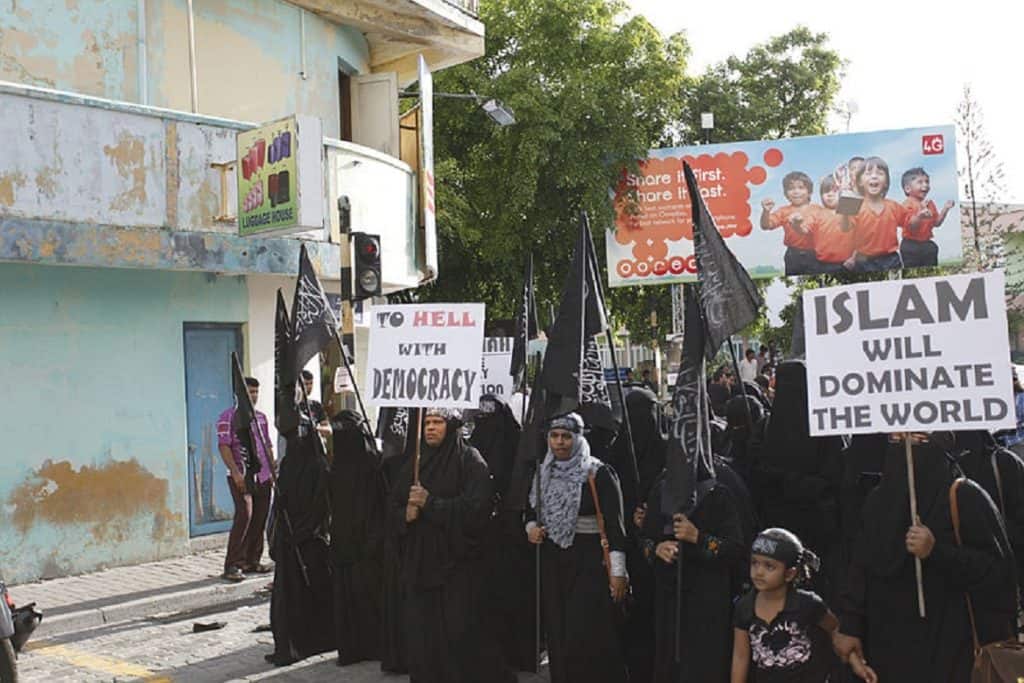The militancy in Muslim world has proliferated in the past years, with a growth in the number of active Islamist insurgent groups. According to a survey 8 out of 10 most dangerous countries in world are Muslim states. Islam Militant has stronghold in Algeria, Afghanistan, Egypt, Indonesia, Jordan, Lebanon, Malaysia, Nigeria Philippines, Pakistan, Somalia, Syria, Sudan, Yemen, Palestinian territories, and other states.
Conflict pattern in Muslim states have become an important part in the global map of conflict. One scholar commented that Muslim world is now representing a tragic story, and it is like a stricken ship with no one to steer it out of the troubled waters. Samuel Huntington, in the famous theory of Clash of Civilizations, predicts that East West confrontation will be replaced by clash within civilization, which is true with reference to the Muslim world. (Ahmed, 2012).
The rising wave of militancy in Muslim world has many manifestations, e.g. in form of terrorist organizations, civil wars, interstate and intra state conflict in Muslim world, sectarianism etc. In recent years many radical organizations have developed. The largest ones are Hamas, Islamic Jihad, Hezbollah, Al Qaeda, Boko Haram, and ISIS. The aim of most of these organizations is to eliminate the Western influence.
The borders between the Islamic states and the west have become flashpoint for major conflicts. But most of the conflicts in Muslim world are of local nature; arise due to political, economic, and social causes. Most of the conflicts are unresolved, intensify and extend beyond the original boundaries.
Many Muslim states are affected by civil wars. The rising of militancy gave a push to theses civil wars and make situation more vulnerable. Currently countries affected with civil wars are Afghanistan, Pakistan, Sudan, Somalia, Syria, Libya, Yemen, Nigeria and Burma insurgency.
Then sectarianism is another major factor to promote militancy in Muslim world. The growing sectarianism is creating division and fanning the flames of conflicts. The friction between Shia and Sunni (two major sections in Islam) communities is date back to Islamic revolution in Iran. Soon after the anti-Soviet war in Afghanistan, world saw the rise of Sunni militancy. The sectarian divide has now emerged as a strategic issue, with implications that go well beyond the Muslim world. The sectarian contest has no doubt further weakened the prospects for Muslim states to promote pan Islamic objectives. (Al‐Qarawee, 2013).
Various factors are responsible for fueling the rise of militants in the Muslim world. First, the bad socio-economic situation. The societies are characterized by inequality, corruption, and injustice. Also, Muslim world is lagging far behind the rest of the world in many important areas like science, political and economic development, technology, artistic and cultural production.
In western countries the Muslim young people are not fully integrated in social and economic mainstream and they represent a ground for recruitment for radical and rebellious movements.
Governance is also a fundamental problem throughout the Muslim world. Most of the Muslim states are monarchy or dictatorship that often deny the basic human rights of their citizens. And where there is no rule of law the citizens could became aggressive to gain their basic rights.
The spread of jihadi movement across world is also due to internal weakness of Islamic states, in terms of political, intelligence and military capabilities. The concept of Jihad is misinterpreted and manipulated by many fundamentalist religious leaders letting militant Muslims believe that Muslim rights and glory can only be regained through violent struggle. (Fleischmann, 2018).
Addressing growing militancy and Islamic extremism is now a global challenge and priority. However, it will prove difficult to formulate and agree on comprehensive policies and actions to meet this challenge. But some suggestions have been forwarded to mitigate the situation.
Muslim leadership must make efforts to unite Muslim communities from all over the world, put end to sectarian violence, promote education and employment opportunities for unsatisfied and frustrated youth. These leaders should work for development and prosperity of their states instead of pursuing selfish interests.
There should be a correct interpretation of religious texts and no one should be allowed to manipulate the teaching of Islam. For this aim religious scholars must cooperate and play a vital role.
The political and economic grievances that encourage civilians to become militants must be addressed. Job creation, education, open political process, financial support and development programs should be initiated to create long term stability.
The major powers of the world need to perform a responsible role in supporting fundamental human rights, self-determination, international law, democratization, and in promoting genuine economic opportunities.The containment of militancy can be also achieved by recognizing the benign elements of this widespread dangerous trend. Since the war on terror begins, instead of decreasing, the terrorist attacks have been increased 5 times. Instead of using force against militant groups, this plague should be curtailed with amicable means – not bombs. (Smith&Zeigler, 2017).
But Muslim world must learn the lesson from the past and seriously implement political and diplomatic methods to defeat this growing wave of militancy. Most of the problems faced by Muslim world are within and not from the outside. Peace is the essence of Islam and yet the Muslim nations have seen very little of it. Things will not change unless the Muslim world itself will take control of its own destiny through unity, mutuality, and internal cohesion.







